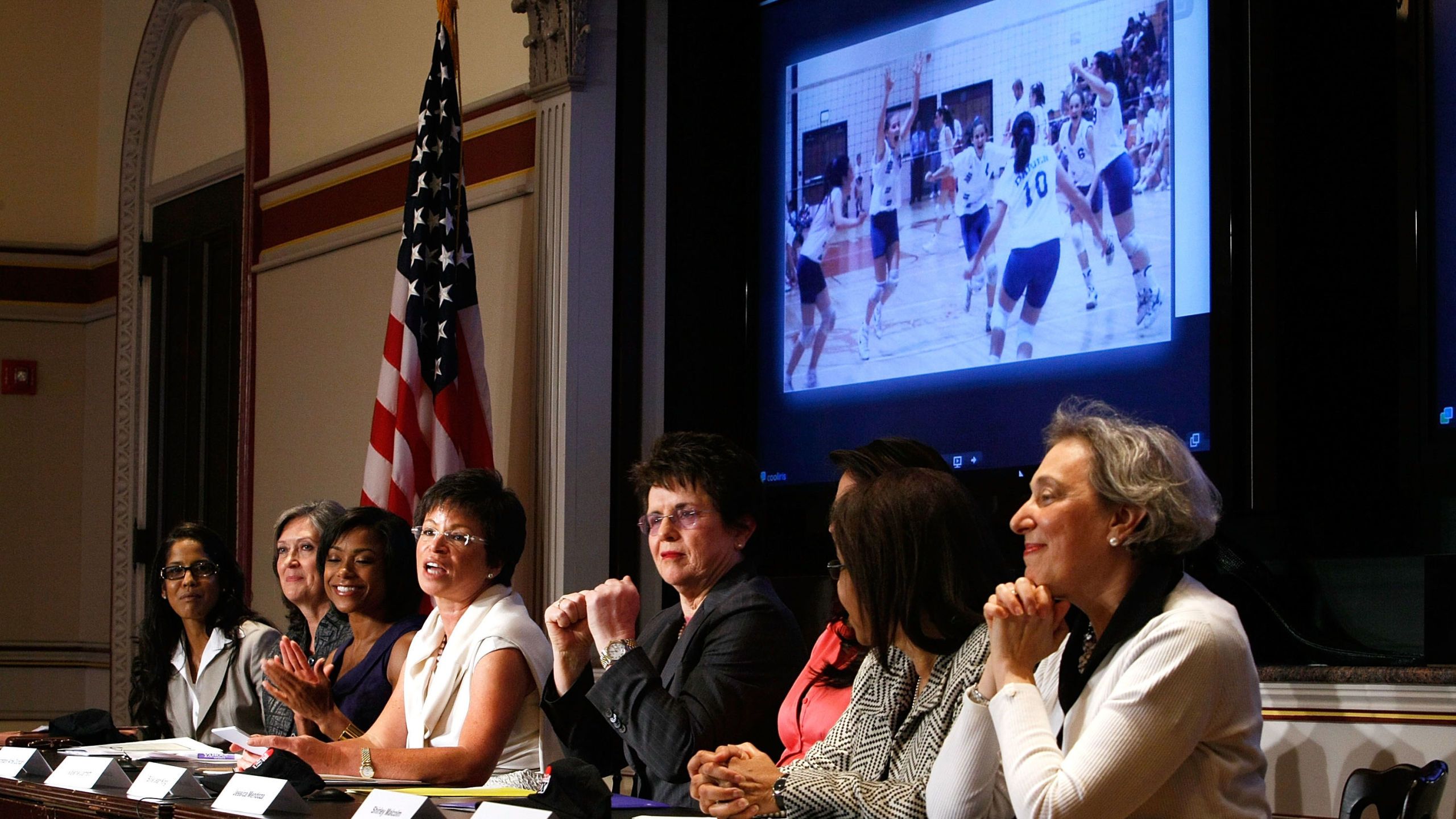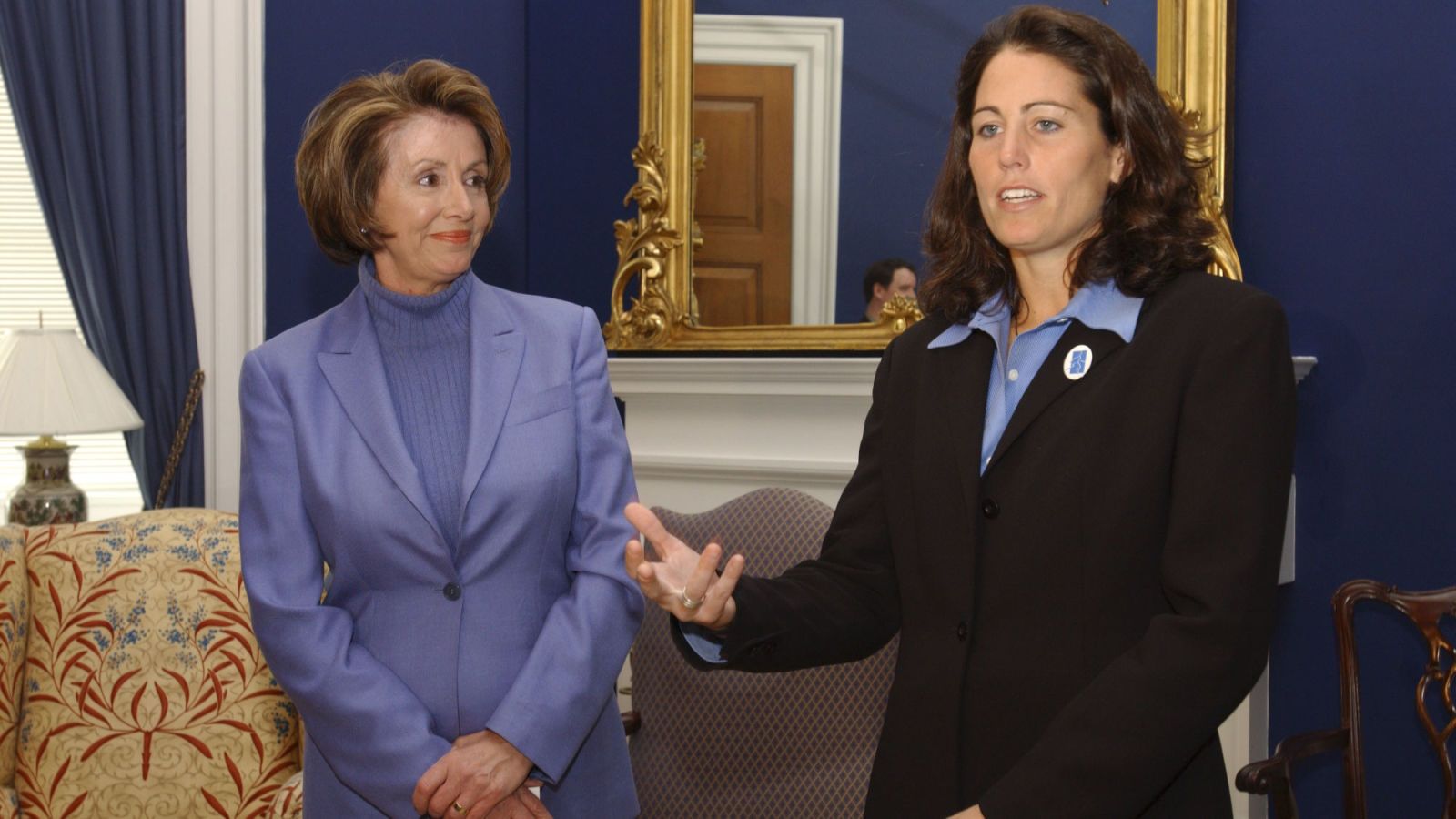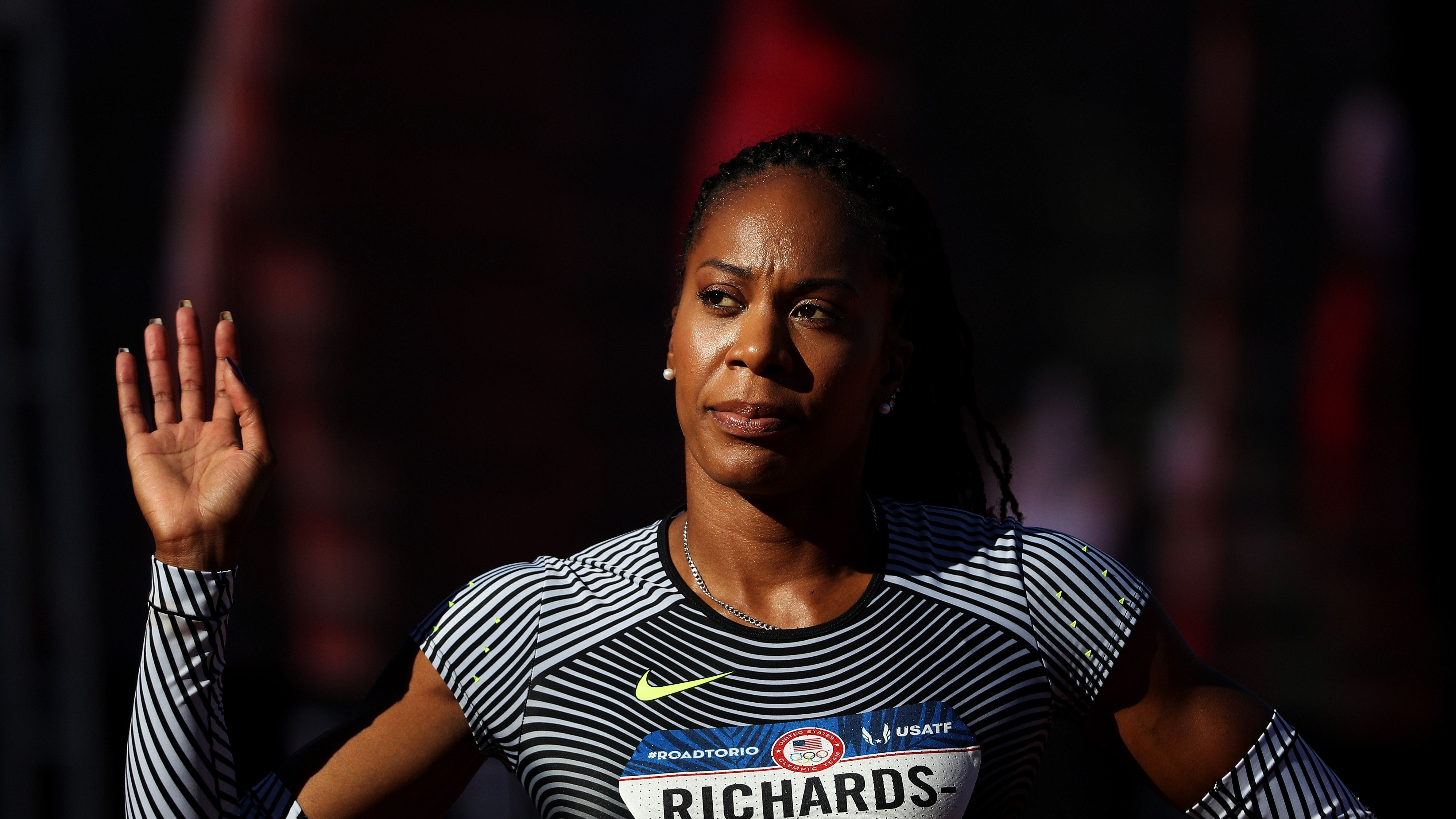Are Women Equal in America? A Look At Title IX's Impact 45 Years Later
The landmark legislation made discrimination on the basis of sex illegal in education. On the 45th anniversary of its passing, Molly Knight examines what that's meant for American women.


Title IX is often conflated with girl power in sports. That's because the number of athletic scholarships a university offers men and women is perhaps the easiest thing to enforce under the law. And the number of girls who participate in high school athletics has risen ten-fold since its passing, from 300,000 nationwide in 1971 to over 3 million today. It's a choice that sets them up for success later on in life: Research shows that among C-level business women, 94 percent played sports and over half competed at the collegiate level.
But the bill wasn't passed into federal law on this day in 1972 to create a nation of future female Olympians. In fact, it states that: "No person in the United States shall, on the basis of sex, be excluded from participation in, be denied the benefits of, or be subjected to discrimination under any education program or activity receiving Federal financial assistance."
"When I was a kid, I couldn't figure out why we didn't have any woman lawyers and doctors." —Billie Jean King
For those of us born in the years since, it's easy to overlook the fact that the basic, fundamental fairness of the law wasn't always a given. "When I was a kid, I couldn't figure out why we didn't have any woman lawyers and doctors," says tennis champion and feminist icon Billie Jean King. "But then I found out later the classroom quotas in those graduate programs only allowed for five percent to be women. Without Title IX, we'd still have those quotas."

To be sure, we've come a long way toward gender equality in the last 45 years. According to a January report from the American Bar Association, women made up 47 percent of law school graduates in the class of 2015, the most recent year for which that data is publicly available. But when it comes to leadership positions, we still have a long way to go. Only 31 percent of law school deans are women, while just 25 percent of Fortune 500 companies employ women as general counsel. Gender parity has yet to be reached at the top tier of nearly any field. Two egregious examples: Women are CEOs of just 28 companies in the S&P 500, and directed only seven percent of the top 250 grossing movies released in 2016.
Why does it matter that women are equally represented? Well, aside from basic human decency and respect for the Civil Rights Act, a recent Harvard University study concluded that you will be safer and healthier if your physician is female. It estimated that if male doctors provided the same level of personalized, patient-focused care that their female counterparts do, 32,000 fewer Americans would die each year. In spite of this, female doctors are paid less money and promoted less often.

But perhaps the place where women most need to catch up is in the United States Congress. Women make up approximately 51 percent of the American population, and there are 435 members of our House of Representatives. Eighty-three are women. That's just 18 percent. The U.S. Senate is slightly better, but still disturbingly bereft: Just 21 of our 100 senators are women. For the past month, thirteen male senators have been writing health care reform that will shape one-sixth of our economy without the input of one female voice. Is it any wonder, then, that the bill strips President Obama's mandate that all health insurance plans cover maternity care?
RELATED STORIES



While Title IX has done wonders to make sure that women and girls have the same opportunities that boys and men do in educational settings, we can't rely on it to mandate that half of all jobs go to women; that's not what it does. And of course, discrepancies in the workforce and in government are not entirely due to discrimination. (Millions of women choose to focus on child-rearing, for example, rather than pursue a demanding career—a perfectly legitimate choice.) But we can look to the legislation for inspiration as we fight to narrow the gap. That 47 percent of all the people graduating law school today are women would have been unthinkable in 1972.
Stay In The Know
Get exclusive access to fashion and beauty trends, hot-off-the-press celebrity news, and more.
Warren Buffett famously said that one of the main reasons he has achieved so much success in his life is he was only competing with half the population. To wit, we are not going to have a country that works for women until we have equal representation in its highest institutions.
So on this, the 45th anniversary of Title IX, I encourage each of you to take a minute out of your day to locate an exhausted woman in your life and tell her you think she's doing a great job. Tomorrow, think about the ladies you know who would make strong leaders in your community or at work, and encourage them to apply for, or step into, open leadership positions. And the day after that, maybe visit this website and nominate someone you know to run for office. When she wins, we'll be one person closer to the egalitarian utopia of Title IX's dreams.
Follow Marie Claire on Facebook for the latest celeb news, beauty tips, fascinating reads, livestream video, and more.
Molly Knight wrote about baseball for ESPN the Magazine for eight seasons. Her work has also appeared in The New York Times Magazine, Glamour, SELF, Vanity Fair, Baseball Prospectus, and Variety. Her first book, The Best Team Money Can Buy: The Los Angeles Dodgers Wild Struggle to Build a Baseball Powerhouse, was a New York Times Bestseller.
-
 Taylor Townsend Sea Mosses Her Way to Better Wellness
Taylor Townsend Sea Mosses Her Way to Better WellnessThe tennis star serves up self-care between sets.
By Siena Gagliano
-
 What to Know About the Cast of 'Resident Playbook,' Which Is Sure to Be Your Next Medical Drama Obsession
What to Know About the Cast of 'Resident Playbook,' Which Is Sure to Be Your Next Medical Drama ObsessionThe spinoff of the hit K-drama 'Hospital Playlist' features several young actors as first-year OB-GYN residents.
By Quinci LeGardye
-
 Duchess Sophie Stepped Up to Represent King Charles at Event Amid Calls for King Charles to "Slow Down"
Duchess Sophie Stepped Up to Represent King Charles at Event Amid Calls for King Charles to "Slow Down"The Duchess of Edinburgh filled in for The King at the Royal Military Academy Sandhurst.
By Kristin Contino
-
 36 Ways Women Still Aren't Equal to Men
36 Ways Women Still Aren't Equal to MenFeatures It's just one of the many ways women still aren't equal to men.
By Brooke Knappenberger
-
 How New York's First Female Governor Plans to Fight for Women If Reelected
How New York's First Female Governor Plans to Fight for Women If ReelectedKathy Hochul twice came to power because men resigned amid sexual harassment scandals. Here, how she's leading differently.
By Emily Tisch Sussman
-
 Why the 2022 Midterm Elections Are So Critical
Why the 2022 Midterm Elections Are So CriticalAs we blaze through a highly charged midterm election season, Swing Left Executive Director Yasmin Radjy highlights rising stars who are fighting for women’s rights.
By Tanya Benedicto Klich
-
 Tammy Duckworth: 'I’m Mad as Hell' About the Lack of Federal Action on Gun Safety
Tammy Duckworth: 'I’m Mad as Hell' About the Lack of Federal Action on Gun SafetyThe Illinois Senator won't let the memory of the Highland Park shooting just fade away.
By Sen. Tammy Duckworth
-
 Roe Is Gone. We Have to Keep Fighting.
Roe Is Gone. We Have to Keep Fighting.How To Democracy always offers a path forward even when we feel thrust into the past.
By Beth Silvers and Sarah Stewart Holland, hosts of Pantsuit Politics Podcast
-
 The Supreme Court's Mississippi Abortion Rights Case: What to Know
The Supreme Court's Mississippi Abortion Rights Case: What to KnowThe case could threaten Roe v. Wade.
By Megan DiTrolio
-
 Sex Trafficking Victims Are Being Punished. A New Law Could Change That.
Sex Trafficking Victims Are Being Punished. A New Law Could Change That.Victims of sexual abuse are quietly criminalized. Sara's Law protects kids that fight back.
By Dr. Devin J. Buckley and Erin Regan
-
 My Family and I Live in Navajo Nation. We Don't Have Access to Clean Running Water
My Family and I Live in Navajo Nation. We Don't Have Access to Clean Running Water"They say that the United States is one of the wealthiest countries in the world. Why are citizens still living with no access to clean water?"
By Amanda L. As Told To Rachel Epstein